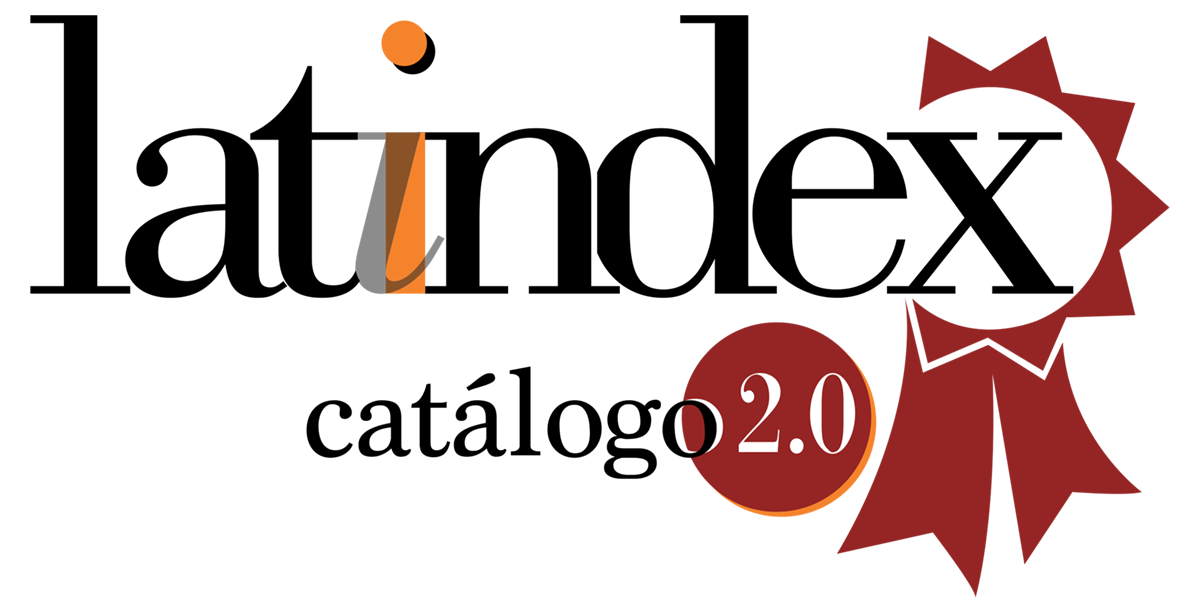The Relationship between attitudes and study habits with the academic performance of entrants to the New Teacher Training Year 2022
DOI:
https://doi.org/10.57201/ieuna2424623Keywords:
Study habits, Attitude towards study, Teacher training, Academic performance, Higher educationAbstract
In 2019, the Ministry of Education and Science (MEC) began the implementation of the New Teacher Training (NFD) with the aim of improving the quality of the profile of entry to teacher training (FD). This study aimed to determine the relationship between attitudes, study habits, and academic performance (AR) in Mathematics, Spanish, and Guarani of those entering the New Teacher Training. A quantitative approach of correlational scope was used, surveys were applied to incoming students in 13 teacher training institutions, in 2022, to know their habits and attitudes towards studying, the RA was obtained from the results of the points obtained in the entrance exams. The results indicate that there is a significant association between students' attitudes and their AR in Spanish (contingency coefficient [CC] = 0.132, p < 0.05) and Guarani (CC = 0.139, p < 0.05), with a low strength of association. No statistically significant relationships were found between study habits and RA in any of the areas. These findings suggest that while good study habits are essential, they alone may not guarantee academic success.
Downloads
References
Andrade-Valles, I., Facio-Arciniega, S., Quiroz-Guerra, A., Alemán-de la Torre, L., Flores-Ramírez, M., y Rosales-González, M. (2018). Actitud, hábitos de estudio y rendimiento académico: Abordaje desde la teoría de la acción razonada. Enfermería Universitaria, 15(4), 342-352. https://doi.org/10.22201/eneo.23958421e.2018.4.533
Ahiatrogah, P. D., Deku, P., y Dramanu, B. Y. (2008). Relationship between study habits and academic performance: A case of University of Cape Coast distance learners. Journal of Educational Development and Practice, 2. https://doi.org/10.47963/jedp.v2i.944
Abu Bakar, K., Tarmizi, R. A., Mahyuddin, R., Elias, H., Su Luan, W., & Ayub, A. F. M. (2010). Relationships between university students’ achievement motivation, attitude and academic performance in Malaysia. Procedia - Social and Behavioral Sciences, 2(2), 4906-4910. doi:10.1016/j.sbspro.2010.03.793
Chilca Alva, M. L. (2017). Autoestima, hábitos de estudio y rendimiento académico en ingresantes universitarios. Propósitos y Representaciones, 5(1), 71 - 127. http://dx.doi.org/10.20511/pyr2017.v5n1.145
Chong González, E. G. (2017). Factores que inciden en el rendimiento académico de los ingresantes de la Universidad Politécnica del Valle de Toluca. Latinoamericana de Estudios Educativos, XLVII(1), 91–108. https://www.redalyc.org/articulo.oa?id=27050422005
Córdova Zamora, M. (2003). Estadística: Descriptiva e inferencial aplicaciones. 5° ed. Perú. MOSHERA SRL.
Credé, M. & Kuncel, N. R. (2008). Study habits, skills, and attitudes: The third pillar supporting collegiate academic performance. Perspectives on Psychological Science, 3(6), 425-453. doi:10.1111/j.1745-6924.2008.00089.x
Herrera Rivera, P. y Arancibia Carvajal, S. (2022). Modelo exploratorio de factores que inciden en el rendimiento académico percibido. Revista de Estudios y Experiencias en Educación, 21(45), 333-351. https://www.redalyc.org/journal/2431/243170668017/html/
Jafari, H., Aghaei, A. & Khatony, A. (2019). Relationship between study habits and academic achievement in students of medical sciences in Kermanshah-Iran. Advances in medical education and practice,10, 637–643. https://doi.org/10.2147/AMEP.S208874
Kármen, D., Kinga, S., Edit, M., Susana, F., Kinga, K. J., & Réka, J. (2015). Associations between academic performance, academic attitudes, and procrastination in a sample of undergraduate students attending different educational forms. Procedia - Social and Behavioral Sciences, 187, 45-49. https://doi.org/10.1016/j.sbspro.2015.03.009
Lawrence, A. S. A. (2011). Relationship between study habits and academic achievement of higher secondary school students. Journal of Educational and Developmental Psychology, 1(1), 34-42. https://doi.org/10.5539/jedp.v1n1p34
Looyeh, H. R., Fazelpour, S. F., Masoule, S. R., Chehrzad, M. M. & Leili, E.K. (2017). The Relationship between the Study Habits and the Academic Performance of Medical Sciences Students. Journal of Holistic Nursing and Midwifery, 27, 65-73. https://doi.org/10.18869/ACADPUB.HNMJ.27.2.65
López Alegria, F., Rivera López, G. y Rubio Rivera, A. (2021). Factores asociados al rendimiento académico en la asignatura de anatomía humana en ingresantes de pregrado de ciencias de la salud. Revista de la Facultad de Medicina, 69(3). https://doi.org/10.15446/revfacmed.v69n3.81675
Martín Pavón, M. J., Sevilla Santo, D. E., y Jenaro Río, C. (2018). Factores personales-institucionales que impactan el rendimiento académico en un posgrado en educación. Revista de Investigación Educativa, 27, 5-32. https://www.scielo.org.mx/scielo.php?script=sci_arttextypid=S1870-53082018000200004
MEC. (2019). Procedimientos para el ingreso a la formación docente inicial. Paraguay. https://enef.edu.py/wp-content/uploads/2020/02/PROCEDIMIENTOS-DE-INGRESO-A-LA-FORMACIO%CC%81N-DOCENTE-INICIAL.PDF.pdf
MEC. (2020). Informe ejecutivo resultados del SNEPE 2018. Asunción. MEC. https://www.mec.gov.py/cms_v2/adjuntos/16021?1599670657
Medina, N., Fereira, J. y Marzol, R. (2018). Factores personales que inciden en el bajo rendimiento académico de los ingresantes de geometría. Estudios Interdisciplinarios, 20(1), 4-28. Recuperado de https://dialnet.unirioja.es/servlet/articulo?codigo=6436353
Ormrod, J. E. (2012). Human learning . 6th ed. Pearson.
Padua Rodríguez, L. M. (2019). Factores individuales y familiares asociados al bajo rendimiento académico en ingresantes universitarios. Revista Mexicana de Investigación Educativa, 24(80), 53–63.https://www.scielo.org.mx/scielo.php?pid=S1405-66662019000100173yscript=sci_abstract
Palacios de Asta, G. M. (2023). Relación de factores intrínsecos y extrínsecos con el rendimiento académico de los ingresantes a la Nueva Formación Docente. Año 2022. (Tesis Doctoral en Educación). Instituto Nacional de Educación Superior. Asunción.
Rodríguez Jaume, M. J. y Mora Catalá, R. (2001). Estadística informática: casos y ejemplos con el SPSS. Alicante. Universidad de Alicante. https://books.google.com.py/books/about/Estad%C3%ADstica_inform%C3%A1tica.html?id=BIIOAgAACAAJ&redir_esc=y
Siahi, E., y Maiyo, J. (2015). Study of the relationship between study habits and academic achievement of students: A case of Spicer Higher Secondary School, India. International Journal of Educational Administration and Policy Studies, 7(7), 134-141. https://doi.org/10.5897/IJEAPS2015.0404
Silverrajoo, P. y Hassan, A. (2018). Relationship between study habits and academic achievement among health science students. International Journal of Academic Research in Business and Social Sciences, 8(7), 763-774. doi:10.6007/IJARBSS/v8-i7/4418
Taşgın, A., & Coşkun, G. (2018). The relationship between academic motivations and university students' attitudes towards learning. International Journal of Instruction, 11(4), 935-950. https://doi.org/10.12973/iji.2018.11459a
Vargas Hernandez, M., y Montero Rojas, E. (2016). Factores que determinan el rendimiento académico en matemáticas en el contexto de una universidad tecnológica: Aplicación de un modelo de ecuaciones estructurales. Universitas Psychologica, 15(4), 1-11. https://doi.org/10.11144/Javeriana.upsy15-4.fdra
Woolfolk, A. (2013). Educational psychology . 12th ed. Pearson.
Wrenn, C. G. (1967). Inventario de hábitos de estudio. Paidós.
Published
How to Cite
Issue
Section
License
Copyright (c) 2024 Gerda Palacios de Asta

This work is licensed under a Creative Commons Attribution 4.0 International License.


















